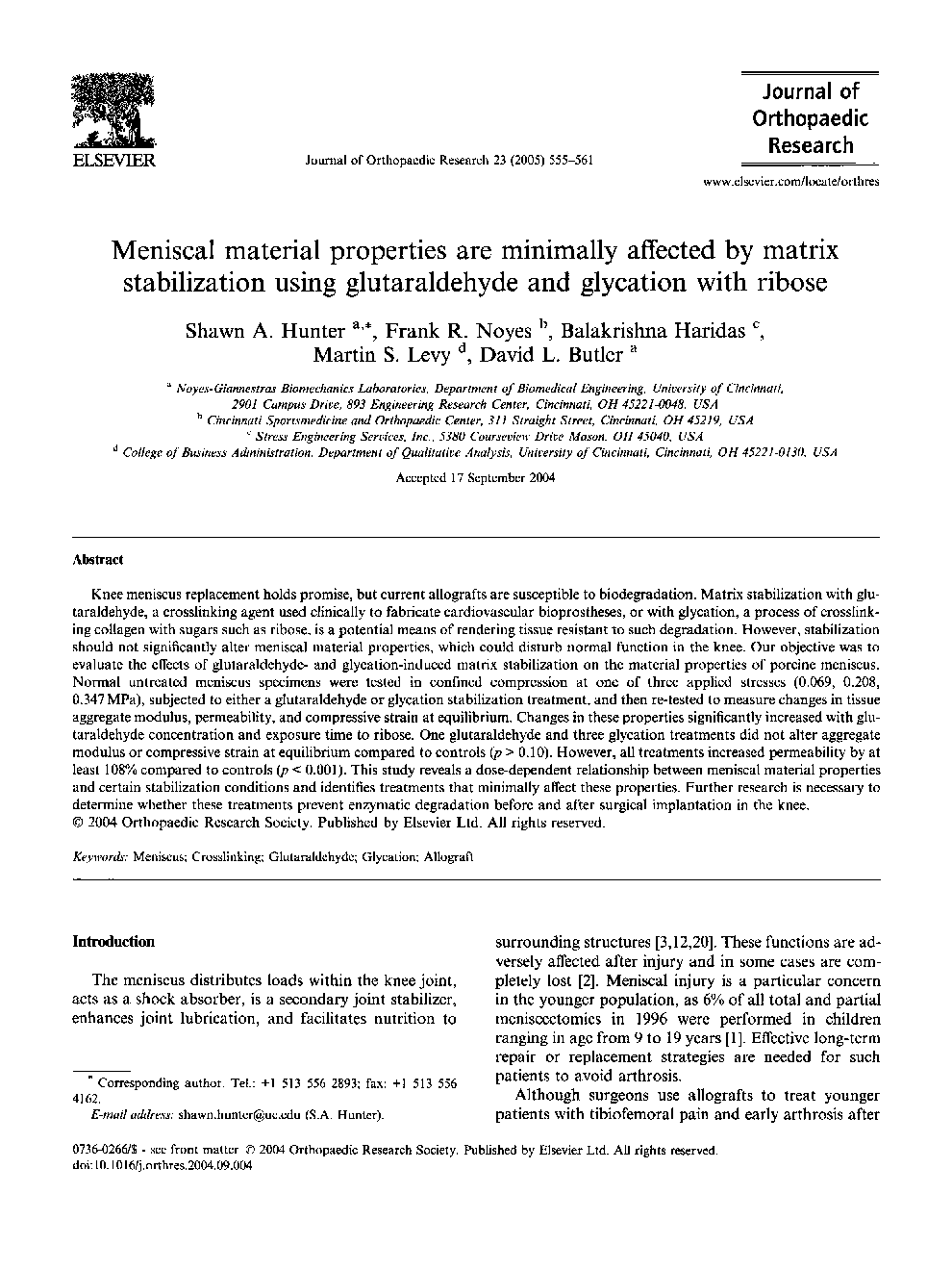| Article ID | Journal | Published Year | Pages | File Type |
|---|---|---|---|---|
| 9353969 | Journal of Orthopaedic Research | 2005 | 7 Pages |
Abstract
Knee meniscus replacement holds promise, but current allografts are susceptible to biodegradation. Matrix stabilization with glutaraldehyde, a crosslinking agent used clinically to fabricate cardiovascular bioprostheses, or with glycation, a process of crosslinking collagen with sugars such as ribose, is a potential means of rendering tissue resistant to such degradation. However, stabilization should not significantly alter meniscal material properties, which could disturb normal function in the knee. Our objective was to evaluate the effects of glutaraldehyde- and glycation-induced matrix stabilization on the material properties of porcine meniscus. Normal untreated meniscus specimens were tested in confined compression at one of three applied stresses (0.069, 0.208, 0.347 MPa), subjected to either a glutaraldehyde or glycation stabilization treatment, and then re-tested to measure changes in tissue aggregate modulus, permeability, and compressive strain at equilibrium. Changes in these properties significantly increased with glutaraldehyde concentration and exposure time to ribose. One glutaraldehyde and three glycation treatments did not alter aggregate modulus or compressive strain at equilibrium compared to controls (p > 0.10). However, all treatments increased permeability by at least 108% compared to controls (p < 0.001). This study reveals a dose-dependent relationship between meniscal material properties and certain stabilization conditions and identifies treatments that minimally affect these properties. Further research is necessary to determine whether these treatments prevent enzymatic degradation before and after surgical implantation in the knee.
Related Topics
Health Sciences
Medicine and Dentistry
Orthopedics, Sports Medicine and Rehabilitation
Authors
Shawn A. Hunter, Frank R. Noyes, Balakrishna Haridas, Martin S. Levy, David L. Butler,
